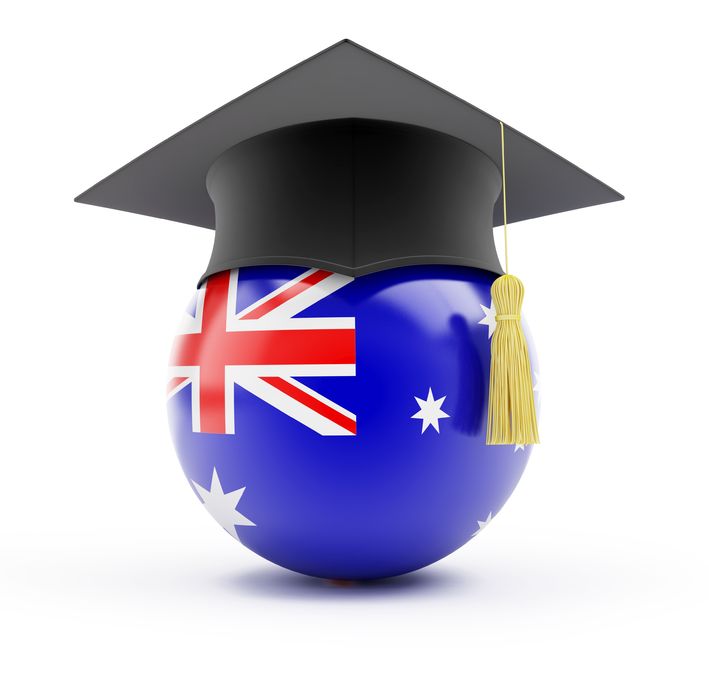WHY AUSTRALIA FOR EDUCATION?
Australia is running on a 10 year plan — National Strategy for International Education 2025 — to become global leader in education, training and research. Not to mention Australia is already the third best international student destination in the world, after the US, and the UK. Students from all around the world come to join world class institutions while living on most hospitable, affordable an safe cities of the world; It is home to 6 out of 100 top universities in the world and 5 out of 30 best student cities in the world are in Australia, with Melbourne ranking just second.
The ever-increasing promise on research, teaching, employ-ability and internationalization is evident through the fact that 10 out of 50 world’s top universities under 50 years old are in Australia. Student interested in any discipline can make a choice to come to Australia without even thinking twice for one or another Australian university s appear in the list of first 50 world universities virtually in every field of study like Arts & humanities, Business & Economics Clinical, pre-clinical & health, Computer Science, Engineering & technology, Life sciences, Physical sciences and Social sciences. And the international reputation of the courses and the universities alike ensures no matter where in the world you choose to pursue your dream, your degree, skill and talent will be recognized.
Surveys have shown that you will continue to find joy both in living and studying in Australia. A great majority of international student continue to be satisfied or very satisfied with the overall experience in Australia (88% 2014, 87% in 2012, and 86% in 2010), living in Australia (88% 2014, 87% in 2012, and 86% in 2010), and study experience in Australia (88% 2014, 87% in 2012, and 86% in 2010).
We will get to witness even greater rise of standard of Australian education as the 10 year plan heads into completion. Australia never stops to welcome international students.
It is also important to note that ranked universities are also the universities with greater proportion of international students and faculty members.
Links and references
- https://nsie.education.gov.au/
- Top countries for international student: https://www.theguardian.com/higher-education-network/blog/2014/jul/17/top-20- countries-international- students
- QS World University Rankings® 2016-2017: https://www.topuniversities.com/university-rankings/world-university-rankings/2016
- https://www.topuniversities.com/city-rankings/2016
- https://www.topuniversities.com/university-rankings/top- 50-under- 50/2016
- https://www.timeshighereducation.com/world-university- rankings/by-subject
- International Student Survey 2014: https://internationaleducation.gov.au/research/research-papers/Documents/ISS%202014%20Report%20Final.pdf
>> Education in Australia >>
Study and life in Australia
When you go to Australia, one will experience a different culture and life style from what you are used to. If you don’t get good information and awareness about the country, you may undergo a “culture shock” or the “blues of new place”. It is important to observe the habits, reactions and customs of people. Learn as much as you can, get info-rich but never ever change your traditional values and your real self.
Do not let the previous paragraph intimidate you or put you off. Just because a country like Australia is different does not make it nessarily worse. On the contrary, Australia is one of the most multi-cultural societies in the world. Over 20% of Australian citizens were born overseas and they are drawn from over 200 different nations making Australia a real ‘melting pot’ nation. Around 20% of Australians speak a language other than English in their home. Although it is predominantly a Christian society, all forms of religion are represented in Australia and they are freely practised and protected by law. Australians are friendly, direct and informal in their dealings with each other as they believe in equality and a ‘fair go’ society. People who work in low skilled or ‘blue collar’ jobs such as cleaners, bus drivers etc receive the same respect as those who work in professional jobs. It is also highly illegal to discriminate against others on grounds of race, gender, religion or sexuality. Punctuality is important, if you are running late, you should always inform whom you are meeting as act of courtesy. People in Australia form queues to buy food, wait for a particular service, to board public transport etc and it is impolite to push ahead of someone already queuing. People often use the first name, even with respected elders as long as they know them or have been formally intoduced.
There is a lot more you will learn about Australian people but be positive, be flexible and try to adapt. Listen, observe and ask whenever you are in doubt.
The method of study in Australia may be very different to what you have experienced so far. It is important to give yourself a head start by keeping up to date with Australian news and current affairs and become familiar with Australia’s education system and learning culture. When you arrive, practice listening to the Australian accent – it is different but you will soon understand the local terms and way of speaking.
In Australia just like most other countries, students are expected to conduct independent research, collect and analyse data by themselves or in-groups, to raise questions and to participate in discussions and debates with other students and teachers. Students spend a great deal of time in libraries and laboratories conducting their own research. To be a successful student you will need to adapt to these new methods of learning and assessment. Students are assessed continuously through essays, presentations, tests, assignments etc. One thing that may surprise you is the amount of access that you will be able to obtain with your tutors and lecturers. If you are having an academic problem, discuss it with them – don’t let it develop from a minor issue into a major problem for you.

